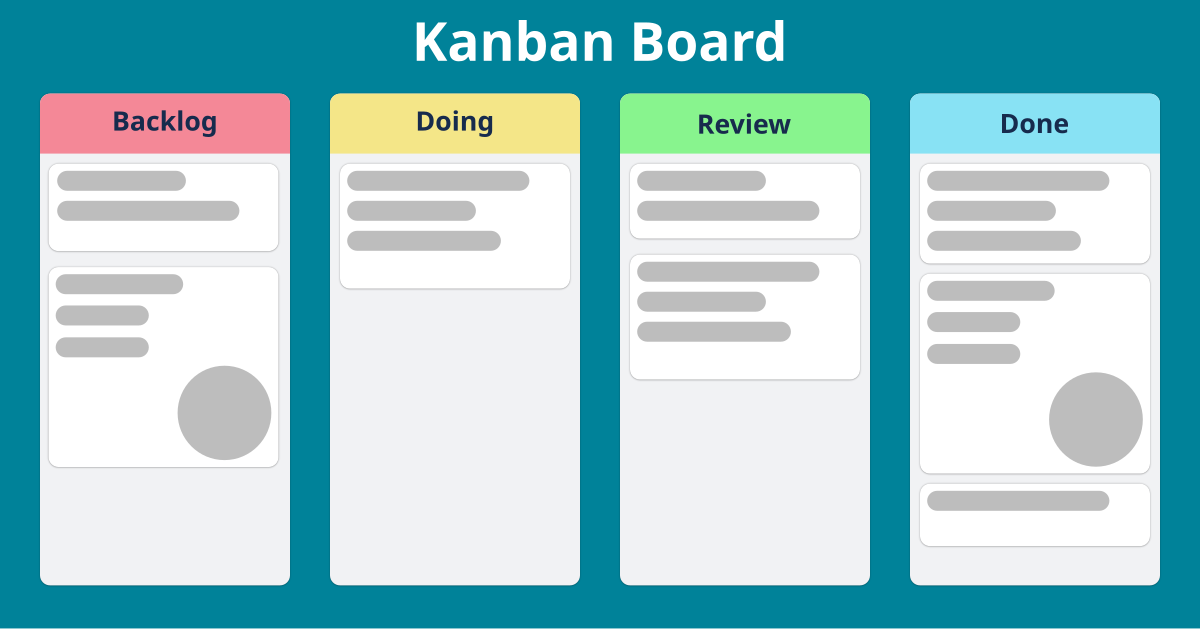July 8, 2025
32 min read
Get weekly updates with our Newsletter
Regular updates ensure that readers have access to fresh perspectives, making Poster a must-read.
Courage Oseghale
July 6, 2025
20 min read

In the fast-paced world of UK construction, Quantity Surveyor skills aren’t just a checklist—they define how effectively you deliver value, control costs, and lead projects. Whether you're pursuing chartership or managing complex contracts, mastering the right blend of technical know-how and soft skills sets top-tier QSs apart in 2025.
This article dives into the 10 essential skills every Quantity Surveyor needs—from precise cost estimation and contract law expertise to digital proficiency with BIM tools, and negotiation blended with emotional intelligence. We’ll explore how each skill plays a critical role in modern project delivery, showcase real-world examples and case insights, and uncover practical strategies to develop and showcase these strengths, from CV tips to interview prep.
Whether you’re a seasoned professional refreshing your edge or an emerging QS aiming for MRICS, this guide offers a comprehensive roadmap to help you invest in the right competencies, stand out to employers, and steer your career to new heights.
In 2025, communication is no longer a “nice-to-have”—it’s a core skill that defines how well a Quantity Surveyor functions within a multidisciplinary project environment. Whether you're working with architects, contractors, clients, or subcontractors, your ability to communicate confidently and collaboratively will make or break project success.
As a QS, you're constantly interpreting and relaying complex information, such as cost breakdowns, technical drawings, and contractual terms. Strong communication ensures all stakeholders understand the financial implications of decisions.
Examples include:
Tip: Use visual aids (charts, dashboards) and plain English when presenting data.
Reporting is a critical part of the role, especially in consultancy environments or for chartered professionals. Quantity Surveyors regularly produce:
Real-world insight: A senior QS at Turner & Townsend shared that their client communications are now expected to follow brand guidelines and contain data visualisation, raising the bar for how cost reports are perceived.
From tender discussions to variation claims, Quantity Surveyors must frequently negotiate:
Key skills here include:
Example: A QS working on a retail project negotiated a £120,000 saving through re-sequencing works rather than removing key finishes, preserving quality without breaching budget.
Today’s QSs are client-facing advisors. Your reputation often hinges on your ability to:
Insight: According to a 2024 RICS client satisfaction survey, QSs who offered “proactive communication and budget clarity” were 58% more likely to receive repeat business.
At the heart of quantity surveying lies a core skillset: working with numbers. Quantity Surveyors must accurately estimate, monitor, and manage costs at every stage of a construction project. In 2025’s data-driven construction environment, these numerical skills are more important—and more technical—than ever.
Before any cost plan can be drafted, you need precise measurements from architectural and engineering drawings. This process, known as take-off, is essential for:
Modern QSs are expected to carry out these tasks using digital tools like CostX or Bluebeam, which integrate with CAD and BIM models for fast, accurate measurement.
Numeracy is about more than measuring quantities—it’s about translating those figures into real-world financial strategies.
Key cost planning tasks include:
Tip: Always benchmark against BCIS data to validate your cost assumptions, especially when advising clients on early design-stage viability.
During the construction phase, it’s your job to ensure costs stay within budget and any variations are tracked and reported properly. This involves:
Insight: In a 2025 infrastructure project for HS2, QS teams used real-time dashboards linked to BIM data to monitor spend across 12 work packages, highlighting issues weeks before traditional reporting would.
Modern QSs should be comfortable with:
Example: A London-based QS consultancy uses Power BI to compare estimated vs. actual spend in live dashboards shared with clients, improving transparency.
Unique Perspective: Many UK-based QSs are now expected to act like “cost data analysts” as much as surveyors. Strong numeracy means being able to interpret trends, draw insights, and tell the story behind the numbers—a skillset that distinguishes a good QS from a great one.
Every Quantity Surveyor must have a strong understanding of construction contracts, legal principles, and risk allocation. This legal literacy ensures you can confidently manage financial entitlements, avoid disputes, and uphold commercial compliance throughout a project lifecycle.
Contract selection determines the rights, responsibilities, and payment structures for all parties involved. The most used forms in the UK are:
Example: A QS working on a National Highways project used NEC4 to proactively manage compensation events, ensuring timely valuations and avoiding late-payment penalties.
Skilled Quantity Surveyors must know how to identify and manage:
The ability to interpret contract clauses and prepare defensible documentation is vital. You’ll often work with project managers or legal advisors to:
Insight: One RICS-accredited QS consultancy reported that 70% of final account disputes they dealt with in 2024 could have been avoided with earlier contract education and notice compliance.
Contracts don’t just assign responsibility—they transfer risk. A good QS must understand how to:
Case example: On a London mixed-use project, the commercial QS team used NEC early warnings to flag piling delays due to poor ground conditions. This led to a £160K saving in claim resolution later.
In 2025, employers expect QSs to go beyond understanding contract formats—they want professionals who can:
Tip: Consider enrolling in RICS contract administration CPD or joining a CIArb (Chartered Institute of Arbitrators) foundation course to develop your legal edge.
The modern Quantity Surveyor is no longer limited to spreadsheets and printed drawings. In 2025, digital fluency is not just an advantage—it’s an industry standard. Employers and clients now expect QSs to be comfortable with construction technology, BIM integration, and data-driven decision-making.
BIM has transformed how QSs interact with project data. 5D BIM allows you to link cost information directly to 3D models, creating a live connection between design and commercial management.
Key benefits:
Example: On a £200M rail station upgrade, the QS team used 5D BIM in Navisworks and CostX to deliver live cost forecasts. This reduced manual errors by 65% and shortened reporting cycles by 40%.
To stay competitive, Quantity Surveyors should master:
Case Insight: A consultancy firm in Birmingham recently rolled out Power BI dashboards for all live projects, allowing clients to monitor cost-to-complete in real-time with visual graphs and alerts.
Communicating cost data effectively is a key QS responsibility. Dashboards created using Excel or Power BI allow professionals to:
Tip: Use Excel pivot tables to segment cost categories, then enhance your outputs with Power BI’s drill-down features for client-friendly interfaces.
Many projects now use integrated platforms like:
As a QS, you’ll be expected to retrieve drawings, log variations, and upload reports within these environments, so digital literacy in cloud-based systems is crucial.
Being tech-savvy isn’t just about tools—it’s about understanding how to streamline workflows, eliminate inefficiencies, and integrate your commercial insight with digital environments. The best QSs can spot patterns, automate processes, and support digital transformation in their teams.
In today’s complex construction landscape, Quantity Surveyors are expected to play a key role in delivering projects on time and within budget. That means you need more than technical knowledge—you need sharp project management and organisational skills to coordinate tasks, prioritise effectively, and respond to challenges as they arise.
QSs often juggle multiple responsibilities across several live projects. These can range from attending site meetings and updating cost forecasts to negotiating variations and submitting payment applications.
Common daily tasks include:
Without structured workflows and prioritisation, important deliverables can slip, leading to missed deadlines, payment delays, or reputational damage.

Example: A QS at a mid-sized contractor managed five concurrent school refurbishments using a Kanban board system and weekly planner, improving their billing cycle accuracy by 30%.
While PMs handle overarching programme schedules, QSs contribute by:
Insight: A 2024 CIOB survey found that commercial staff with project planning experience reduced average cost overruns by 18% compared to those without formal planning skills.
Tip: Develop a working knowledge of tools like MS Project or Primavera P6—even if you’re not leading scheduling, understanding the logic helps your commercial decisions align with programme milestones.
Construction projects are dynamic and unpredictable. Quantity Surveyors often work under:
Being able to maintain composure, meet deadlines, and track documentation effectively is key.
Recommended practices:
Unlike some roles that fade after handover, the QS is present from early design through to project close-out. You are the thread that connects design, cost, schedule, and risk, so your organisational structure becomes the foundation of project stability.
In an industry where budgets are tight and timelines are stricter than ever, analytical thinking is a superpower for Quantity Surveyors. Being able to interpret complex data, evaluate options, and provide strategic insights makes you far more than a “cost counter”—you become a commercial advisor.
At its core, analytical thinking in QS involves turning raw data into meaningful insights. This includes:
Example: A QS team analysing three years of internal project data noticed a 12% increase in steel package costs on inner-city projects. By recognising this trend early, they negotiated a framework deal with a supplier, saving 9% on upcoming schemes.
Value engineering (VE) isn’t about cutting corners—it’s about delivering better value for the same or reduced cost. QSs use problem-solving skills to:
Case study: On a university expansion project, the QS worked with the architect to replace a precast cladding system with a modern insulated panel system, reducing cost by £750k while improving energy performance.
Critical thinking allows you to consider:
Insight: Quantity Surveyors involved in early-stage project strategy (RIBA Stage 1–2) are now routinely asked to provide scenario-based cost modelling to help clients make design decisions based on lifecycle value.
What separates a great QS from a good one is the ability to look past the spreadsheet. You’re not just reporting the numbers—you’re advising what they mean, why they matter, and how they influence decisions across the entire project.
Tip: During your RICS APC or interview process, make sure you can demonstrate a time you solved a commercial problem through analysis—this is a key competency for chartership.
In quantity surveying, even a small oversight can lead to thousands of pounds in cost discrepancies or legal disputes. That’s why a meticulous eye for detail isn’t just useful—it’s vital. As a Quantity Surveyor, your work forms the basis for project valuation, cash flow, and contractual compliance, so accuracy and consistency are essential.
Precision during measurement and documentation is critical, especially when producing:
Common pitfalls to avoid:
Example: A QS mistakenly measured brickwork as m² instead of m³, resulting in a £42,000 overstatement in the initial cost plan—caught only at the tender stage. With strict review processes, this could have been flagged earlier.
Clients and contractors rely on your records to track:
A well-organised audit trail protects against:
Best practice: Keep every instruction, drawing revision, and cost justification logged and dated. Use shared drives with version control and access logs to maintain data integrity.
Beyond one-off accuracy, modern QSs contribute to organisational quality systems. This includes:
Case Insight: A QS consultancy in Leeds introduced a peer-review checklist for all cost plans over £5M, reducing rework and client queries by 40% over six months.
In an industry where speed is often prioritised, a QS who can combine efficiency with accuracy stands out. You’ll win trust with contractors, instil confidence in clients, and avoid expensive rectification work down the line.
Tip: Build a habit of conducting your mini audit before issuing any document. It only takes 10 minutes to double-check, but it can save thousands in claims.
To thrive as a Quantity Surveyor in 2025, you need more than technical knowledge—you must understand the commercial forces driving the construction industry. Strong business acumen helps you make decisions that protect your client’s interests while ensuring projects remain financially viable and strategically sound.
While QSs traditionally focus on cost control, today’s professionals are increasingly involved in:
Example: A QS working on a new-build school project helped reduce the capital cost by £600,000 through package reallocation, but also ensured the reduced spec did not increase long-term maintenance costs—a true value-for-money solution.
Being commercially aware means staying informed on:
Insight: In 2024, many UK QSs anticipated inflation impacts post-Brexit and secured early procurement packages, helping clients save up to 10% on key trade packages.
Your business acumen should guide procurement decisions, such as:
Tip: Regularly review supply chain credit ratings and ask for prequalification documents—it’s not just about the lowest bid, but the most reliable.
You’ll often support developers, councils, or private clients in shaping the financial model of a project, which could involve:
Clients increasingly want their QS to act as a strategic partner, not just a cost manager. By understanding the bigger picture—why the project is being built, how it will be funded, and what success looks like—you position yourself as a key decision-maker, not just a technician.
Case Insight: A senior QS in a housing association project identified a more tax-efficient procurement route that saved £450k in VAT exposure, demonstrating real commercial leadership.
Quantity Surveyors rarely work in isolation. Whether you're in consultancy, contracting, or client-side roles, your success is deeply tied to how well you collaborate with other professionals. From architects and engineers to site managers and finance teams, the QS is a key player in aligning project goals and solving problems collectively.
Construction projects involve complex coordination across many functions:
As a QS, your job is to link these perspectives through commercial understanding, helping everyone work within cost and risk boundaries.
Example: On a £40M university refurbishment project, a QS working closely with the design team helped redesign key building elements to reduce material waste, saving £320k while improving buildability.
In both consultancy and contracting environments, you’ll work closely with:
Tip: Use clear file naming, shared templates, and team handover notes to support collaboration, especially across hybrid and remote teams.
You’ll often act as the commercial point of contact for:
Soft skills like active listening, empathy, and constructive feedback are essential to manage expectations, resolve conflicts, and build lasting professional relationships.
Insight: A recent RICS study (2024) showed that construction professionals who rated themselves highly in “collaborative communication” were 2.5x more likely to be promoted within 24 months.
In high-pressure environments, disagreements are inevitable. Strong QSs contribute to a solution-oriented culture by:
Example: On a mixed-use development in Manchester, the contractor QS resolved a major subcontractor dispute through a joint workshop, saving three weeks of legal negotiation.
Quantity Surveyors act as the commercial glue on construction projects. You help ensure that design ambition, programme pressure, and budget reality are aligned by bringing teams together around clear data and shared commercial objectives.
Tip: Develop emotional intelligence alongside technical skills. It’s often what separates good QSs from great ones, especially in senior or client-facing roles.
In the demanding world of construction, a Quantity Surveyor’s reputation is one of their most valuable assets. Upholding ethical standards and professional integrity is essential—not just for compliance but to build trust with clients, contractors, and colleagues. Your decisions often have legal and financial consequences, so acting with transparency and fairness safeguards both the project and your career.
As most UK QSs aim for or hold RICS membership, it’s vital to:
Failing to adhere can result in disciplinary action and reputational damage.
Example: An RICS surveyor was censured after failing to disclose a financial interest in a subcontractor, causing serious client trust issues.
Clients rely on QSs to provide accurate, unbiased, and clear financial information. This means:
Insight: Transparency fosters stronger client relationships and reduces the risk of disputes.
QSs must balance commercial risk with professional responsibility. This includes:
Case Study: A QS who raised early warnings on a risky subcontractor engagement helped avoid a potential £500k claim, earning client praise for due diligence.
Ethical practice isn’t static. The construction landscape evolves, and so do expectations on:
Tip: Engage regularly in CPD focused on ethics and compliance. Being proactive keeps you ahead of regulatory changes and strengthens professional credibility.
In a competitive field, professional integrity sets you apart. It underpins your brand and opens doors to leadership roles, consultancy opportunities, and long-term success.
Becoming a successful Quantity Surveyor in the UK today requires a blend of technical expertise, interpersonal skills, and ethical professionalism. The 10 essential skills covered—from strong communication and numeracy to digital fluency and commercial awareness—reflect how the role has evolved to meet the demands of modern construction projects.
Mastering these competencies will not only help you deliver projects on time and within budget but also position you as a trusted advisor capable of adding strategic value throughout the project lifecycle. The construction industry increasingly values QSs who can think critically, collaborate effectively, and maintain the highest professional standards.
If you are committed to continuous learning and applying these skills in your daily work, your career prospects in quantity surveying will be strong and rewarding. Whether you’re a graduate starting or an experienced QS aiming for chartership or senior roles, embracing this comprehensive skillset will set you apart in 2025 and beyond.
Ready to take your Quantity Surveyor skills to the next level? Start by focusing on one or two areas from this guide, seek relevant CPD opportunities, and connect with professional bodies like RICS to stay updated and networked.
The most important skills include effective communication, strong numeracy, proficiency in construction contracts, digital tool fluency, critical thinking, commercial awareness, and professional integrity. These skills ensure QSs can manage costs, risks, and stakeholder relationships effectively.
Improving negotiation skills involves practising clear communication, preparing evidence-backed positions, understanding contract terms, and aiming for win-win outcomes. Role-playing scenarios and seeking mentorship can also enhance confidence and effectiveness.
Digital tools like BIM, CostX, and Power BI help QSs automate measurements, improve accuracy, provide real-time cost updates, and visualise data effectively. Embracing technology increases productivity and reduces errors in today’s complex projects.
Commercial awareness allows QSs to understand market trends, supply chain risks, and profit margins. This knowledge helps in advising clients on cost-saving strategies, procurement decisions, and project viability, ultimately adding strategic value.
Ethics underpin trust and professionalism. Quantity Surveyors must provide transparent and unbiased cost reporting, adhere to RICS standards, manage conflicts of interest, and act with integrity to protect both client interests and their reputation.
Regular updates ensure that readers have access to fresh perspectives, making Poster a must-read.
©SurveyorSuccess. All rights reserved.

